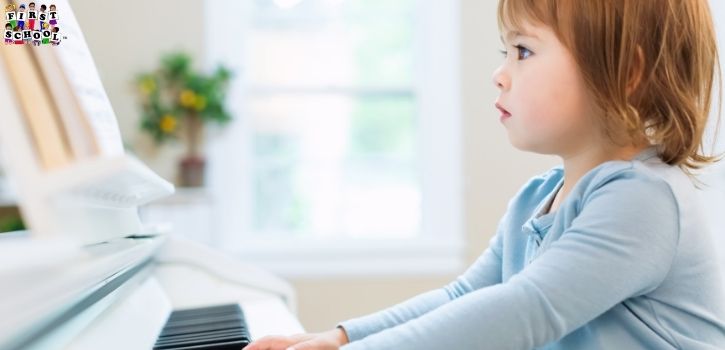

Music helps in overall growth and development of kids. More than physical development, music impacts the mental development of children. Music students are often smart and intelligent.

Learning music improves the concentration level in kids. Music needs a lot of practice and complete focus and taking music lessons at early stages of life become valuable.
Music students are usually well behaved and are very presentable. It’s an art that imbibes discipline in the character that remains with the child forever.
Music is such an art that it fills the learner with enthusiasm and the level is doubled when it comes to staging performance. Encouragement and appreciation from parents, teacher s, and audience build the confidence in them and brings a sense of pride.
The left side of the brain in music students is better developed than non-music students. It results in better-grasping abilities in them and they are very much capable of expressing themselves in a better and convincing way.
Music strengthens the motor skills and coordination in children. Singing and playing instruments require body-mind coordination as well as hand-eye coordination.
Music is not only an art. It’s therapy. It’s both traditional and contemporary way of soothing our souls. It relaxes the mind and keeps children calm and composed.
Playing music is an excellent way to express one’s creativity. The way your children interpret and approach music is unique to them, helping mold their creativity, which will ultimately help in their creative approaches in their academics.
Playing music with others will help children learn to work together as a team and develop their sense of empathy, improving their social and emotional skills.
Being a musician will teach kids time management by managing school with practice sessions and self-confidence by performing in front of a crowd. Learning skills like these at a young age will be the building blocks for a successful future.
Music students usually have better memories as they typically recall things even when their minds are preoccupied with other matters. Learning music also requires utmost concentration, training kids to focus their attention for prolonged periods.
Learning music develops your child’s perseverance and commitment. They learn to work hard to handle challenges they face while learning music, such as reaching a high note while singing or experiencing sore fingertips while playing stringed instruments. Playing music repeatedly to perfect the small details also develops their patience.
Music requires adjustments and improvements on the spot while singing or playing instruments, forcing children to think quickly to overcome small mistakes. Quickly processing problems and solving them will help your children throughout their life.
Music and movement mean the fusion of music with dance and rhythm and letting the kids move to the rhythmic rhymes and nursery tunes.
Toddlers and preschoolers love the blend of music with movement. They love shaking their bodies to the tunes of rhymes or nursery songs. The combination of music and movement is perfect enjoyment for the kids. And, at the same time, it benefits the physical, mental and social growth of children.
Adding music and movement in the preschool education will let these young minds grow in the most constructive way.
Also Read: The Benefits of Music in Child Care Centers